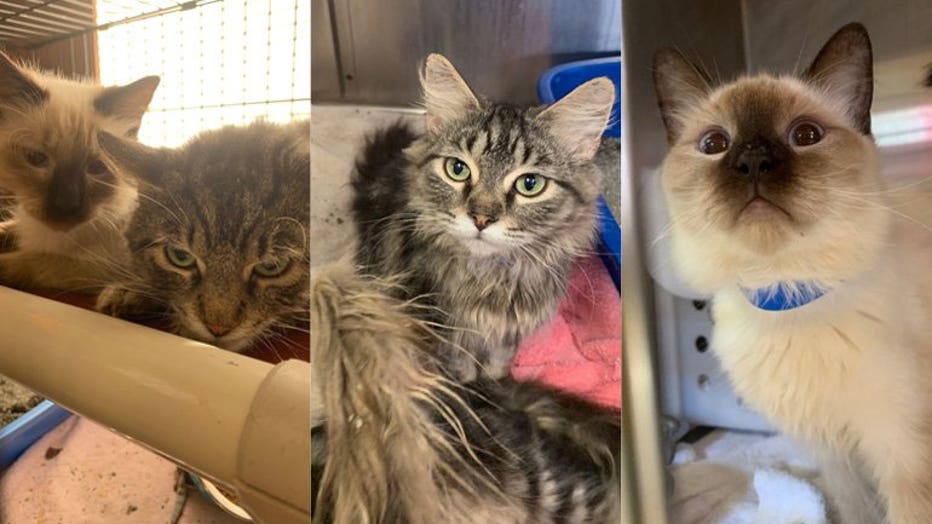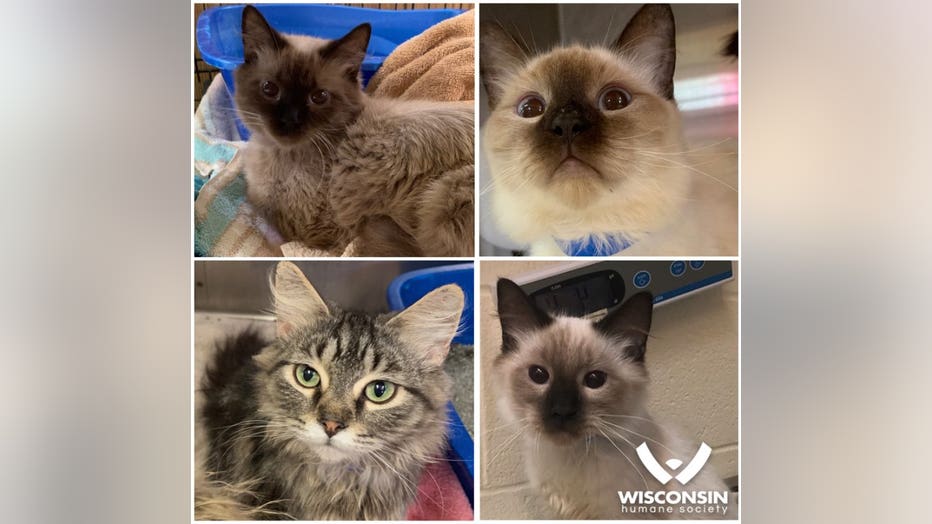Wisconsin Humane Society rescues 65 cats from hoarding situation in Green Bay
GREEN BAY -- Wisconsin Humane Society (WHS) staff on Tuesday, Oct. 8 responded to a request from the Green Bay Police Department to remove cats from deplorable conditions at a residence in Green Bay. What was originally reported to be 20-30 cats, turned out to be 65 in a single household.
According to a press release, the WHS team removed all 65 cats and kittens from the property. Feces and urine permeated nearly every surface of the home, making living conditions for humans and felines alike unbearable.

All the cats will be seen by veterinary staff to be treated for any ailments; most are young adults and appear to be Siamese mixes. They are safe now but have a long road ahead. With their arrival, WHS is now caring for more than 1,000 cats across our campuses.
WHS is asking for the public’s assistance to help cover the extra expenses incurred by this case. Donations can be made at wihumane.org/donate or by calling 414-431-6119.
With more than 200 cats and kittens available for adoption, and more than 1,000 in care, WHS is asking for the community’s help to make space for the newest arrivals. Through October 31, WHS is offering 50% off all kitten adoption fees, plus adoption fees for adults cats are entirely waived, all year long, although WHS welcomes adopters to name their own fee, which counts as a donation.

Those not in a position to adopt but want to help are being asked to consider a shorter-term commitment: fostering! If you are interested in becoming a dog or cat foster parent, please visit www.wihumane.org/foster, watch a short video orientation, and complete the online application; the WHS foster team will follow up with you as soon as possible.
If you believe someone is struggling with animal hoarding, it’s important to reach out for help. It’s a serious mental health challenge that can quickly spiral out of control, affecting not only the animals, but the owners, their families, and the community. Call your local law enforcement, animal welfare organization, health department, or mental health agency for supportive resources.

